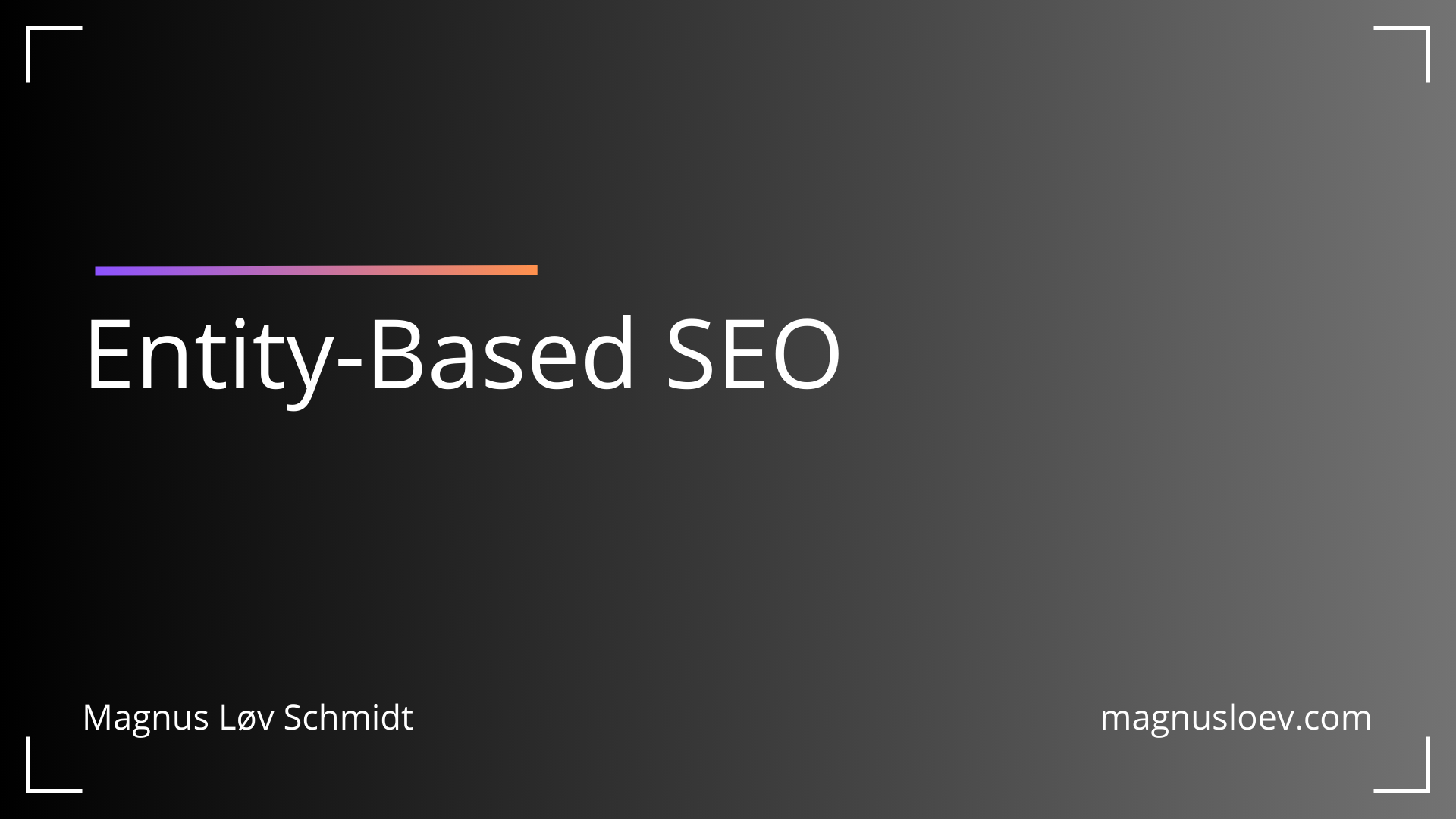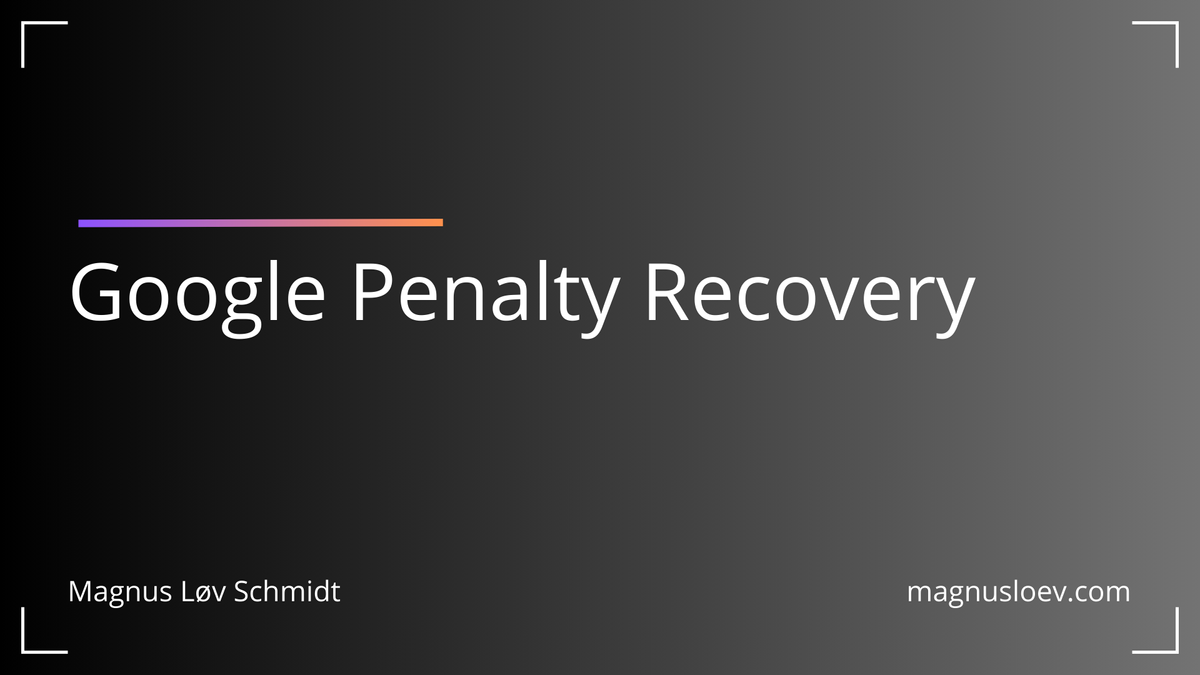Oh look, another SEO evolution to keep us all employed! Just when you mastered the art of keyword stuffing, I mean, "keyword optimization," Google decided to get all sophisticated on us with this entity-based SEO thing. Let's dive into this brave new world where Google pretends to be as smart as an actual human. Exciting times!
What is Entity-Based SEO? (Or: Why Your Keyword Spreadsheets Are Becoming Vintage Collectibles)
Entity-based SEO is Google's way of saying, "Hey, we finally figured out that 'apple' could mean both a fruit AND that trillion-dollar company selling overpriced phones." Groundbreaking stuff, I know.
In its simplest form, an entity is anything that exists as its own concept. People, places, things, ideas, basically everything that has ever existed. So yeah, just a small category to optimize for. No pressure.
The difference between keywords and entities is like the difference between someone learning English by memorizing random phrases versus actually understanding what they mean. For 20+ years, we've been teaching Google phrases like trained parrots, and now it's suddenly developed comprehension. Thanks for the career pivot, Google!
- Keywords are like that friend who recognizes you only by your username
- Entities are like that friend who actually knows you have three kids and a mortgage
- Both are necessary, but one makes you seem less like a robot at parties
Remember when we used to compete over who could jam more keywords into meta tags? Those were simpler times. Now we need actual context. The audacity!
How Search Engines Use Entities (While Pretending They Invented the Concept of Understanding)
Google launched its Knowledge Graph back in 2012, which was essentially its admission that it had been operating with the intellectual capacity of a goldfish for its first decade. "Look at us now, we understand that Tom Cruise and movies have a relationship!" Congratulations, Google, you've achieved what my grandmother understood instinctively.
The Knowledge Graph: Google's Database of Obvious Connections
The Knowledge Graph is basically Google's attempt to document every single thing that exists and how it relates to every other thing. No megalomaniacal ambitions there, nope!
When you search for "Tom Cruise movies," Google doesn't just match those keywords anymore, it actually understands Tom Cruise is an actor who stars in movies. Next thing you know, they'll figure out water is wet.
Natural Language Processing (Or: Teaching Robots to Read Good)
Google employs fancy AI models like BERT and MUM, which sounds like an elderly British couple but are actually sophisticated systems designed to understand content almost as well as an average 12-year-old. Progress!
Entity Salience (Because Not All Mentions Are Created Equal)
Google now doesn't just spot entities, it judges how important they are in your content. Kind of like how your significant other doesn't just hear you talking but evaluates whether you're discussing something important or just mumbling about fantasy football again.
Entities vs. Keywords: A Tale of SEO Evolution
Keywords
Keywords are those things we've been obsessing over since AltaVista was cool:
- They're language-specific (try ranking for "dog" in French with English content, I dare you)
- They can be hilariously ambiguous (looking at you, "python")
- They're the reason your client still sends you "Why aren't we ranking for [incredibly generic term]?" emails
Entities
Entities are what Google aspires to understand after drinking its algorithmic coffee:
- They exist across languages (a dog is a dog is a dog, even in French)
- They have actual meaning (shocking concept in SEO, I know)
- They connect to other entities in logical ways
Real-world example: When writing about JavaScript frameworks, the keyword approach would be "JavaScript frameworks JavaScript frameworks JavaScript frameworks" sprinkled throughout your content like fairy dust. The entity approach acknowledges that React, Angular, and Vue actually mean something to each other beyond just being words on a page. Revolutionary!
The Benefits of Entity-Based SEO (Besides Keeping Up With All Those Algorithm Updates)
Better Alignment with Modern Search Algorithms
Modern search algorithms use entity understanding, so optimizing for entities means you're working with the algorithm rather than trying to trick it. I know, it feels weird to actually cooperate with Google after years of adversarial relationship, but times change.
Improved Contextual Understanding
When Google actually understands your content rather than just scanning for keywords, it can match you to relevant searches even when those searches don't contain your exact keyword phrase. Magic? No. Basic reading comprehension? Yes.
Enhanced Topical Authority
By covering related entities thoroughly, you establish yourself as a subject matter expert rather than just another keyword-chasing content farm. It's almost like being genuinely knowledgeable about your topic might actually help your SEO. What a concept!
Example: A pet website that thoroughly covers different dog breeds, their specific needs, behaviors, and health issues will build stronger authority than one that just repeats "best dog food" in various headline permutations. Who could have possibly predicted that useful content would outperform useless content? Not me!
How to Implement Entity-Based SEO (Without Hiring an Actual AI)
Conduct an Entity Audit (Yes, Another Audit for Your Collection)
Before creating more content, figure out what entities matter in your space:
- Identify the primary entities in your industry (Probably not "cheap viagra online" anymore. Sorry.)
- Map how these entities connect to each other
- See where your current content stands on the entity sophistication scale
- Find the gaps where you've been entity-neglectful
Practical example: If you run a digital marketing agency, your entity map might include services, platforms, metrics, and methodologies, all connected in a beautiful web that looks impressive in presentations but ultimately just means "we should write about stuff that makes sense together."
Optimize Your Knowledge Graph Presence (Or: Beg Google to Notice You)
For businesses trying to be recognized as actual entities themselves:
Use Structured Data Markup (AKA Telling Google About Yourself Because It Can't Figure It Out)
- Implement Schema.org markup that's more comprehensive than your dating profile
- Use all the appropriate entity types and attributes
- Pray that Google actually reads and believes what you've marked up
Leverage Open Data Sources
Connect your entity to established sources that Google already trusts:
- Create and optimize your Google Business Profile (because Google definitely doesn't favor its own properties)
- Make sure your NAP is consistent across the web (a concept we've been discussing since approximately the Bronze Age of SEO)
- Try to get on Wikipedia if you're important enough (good luck with that)
Entity-Optimized Content Creation (Or: Writing Like a Human Being)
1. Entity Research
Before writing, identify:
- Primary entities you'll cover (beyond just "products we sell")
- Related entities that make sense to include
- Actual attributes people might care about
- Logical connections that don't require mental gymnastics
2. Entity-Rich Formatting
Structure your content to highlight entities without looking desperate:
- Use clear headings that normal humans would create
- Define key concepts like you're explaining them to someone who isn't you
- Use visual elements that actually help readers, not just to break up text walls
3. Contextual Entity Mentions
Don't just drop entity names like you're trying to impress people at a cocktail party:
Instead of: "SEO includes technical optimization." Better: "Technical SEO focuses on the infrastructure aspects of your website, like making sure Google can actually find your content without getting lost in a maze of broken links and redirect loops."
The second example establishes what Technical SEO actually is, not just that it exists. Groundbreaking approach, I know.
Common Mistakes in Entity-Based SEO (Because We Always Need Something New to Mess Up)
Neglecting Structured Data
Many sites implement just enough Schema markup to say they've done it, but miss the opportunity to actually tell Google something useful. It's like filling out just your name on a dating profile and wondering why you're not getting matches.
Forced Entity Stuffing (The New Keyword Stuffing)
Just when you thought you couldn't make content any more unreadable, along comes entity stuffing!
Example to avoid: "Our digital marketing agency provides digital marketing services for businesses needing digital marketing help with their digital marketing strategy because digital marketing is what our digital marketing experts do."
Same awful content, brand new justification. Progress!
Missing Entity Relationships
Mentioning entities without establishing their relationships is like introducing people at a party and immediately walking away. "This is React. This is Angular. This is Vue. Good luck figuring out what they have in common!"
Overlooking User Intent
Entity optimization should support answering user questions, not become another SEO checkbox. Remember users? Those human beings who might actually read your content? Yeah, them.
The Future of Entity-Based SEO (According to My Crystal Ball)
AI and Advanced Entity Recognition
As AI gets smarter, it'll identify entities and relationships even when not explicitly stated. Soon Google might understand your content better than you do. Sleep well!
Multimodal Search Understanding
Soon Google will understand entities across different content formats (images, videos, audio), meaning you'll need to optimize everything. Sorry, your job just got more complicated. Again.
Entity-Based Personalization
Eventually, Google will understand that users have preferences for certain entities and deliver personalized results. "We see you like Apple products. Here's more content to separate you from your money!"
Implementing an Entity-Based Strategy Today (Before Your Competitors Figure It Out)
- Start with your important pages. Identify key entities, explain them thoroughly, and connect them logically.
- Implement proper Schema markup. Go beyond the bare minimum and actually tell Google what your stuff is about.
- Build entity relationships through strategic internal linking. Connect related concepts in ways that make actual sense.
- Optimize your brand as an entity. Make sure the internet agrees on who you are and what you do.
The shift to entity-based SEO doesn't mean throwing away your keyword research, it just means finally writing content that makes sense to actual humans. Revolutionary concept in SEO, I know!
Remember: at the end of the day, rankings don't pay bills. Revenue does. And if your SEO isn't contributing to that bottom line, all this entity talk is just another way to sound smart in meetings while your traffic continues to flatline.
But hey, at least now you can blame it on "insufficient entity optimization" instead of "our content is boring." Progress!




Comments